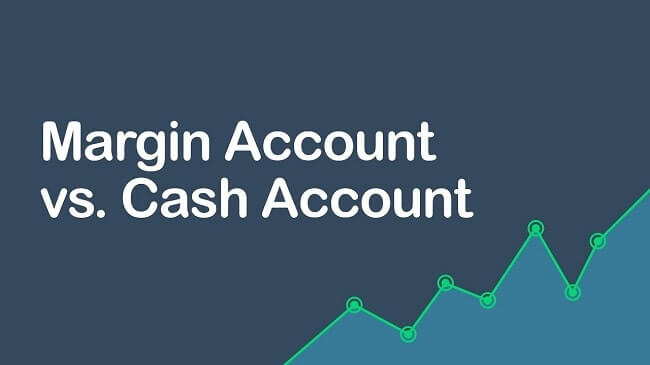When it comes to margin vs cash account, there are some key differences that you need to understand. Margin and cash accounts have pros and cons you should understand to decide the right one for you. Here are the key differences between margin and cash accounts.
What is a Margin Account?
A margin account is a brokerage account that allows you to borrow money from your broker to buy securities. The marginal securities in your account serve as collateral for the loan.
The margin interest rate is typically lower than the interest rate on a personal loan or credit card, and there are no set-up fees or annual fees.
You can also use a margin account to short sell securities. This is when you borrow shares of a stock from your broker and sell them, with the hope of rebuying them at a lower price and returning them to your broker.
What is a Cash Account?
According to the experts at SoFi Invest, a cash account is a type of brokerage account in which you can only trade stocks that you already own. You cannot borrow money to purchase securities, and you cannot short sell securities.
Cash accounts are best for investors who want to buy and hold individual stocks rather than trading them frequently. There are no set-up fees or annual fees for cash accounts.
Comparing and Contrasting Margin vs Cash Account
In a margin account, you can trade with borrowed money which is great for short-term trading, but you will also pay interest on the margin loan that your broker provides to make these trades.
This means that margin loans are expensive if used for long-term investments, as you will pay interest on margin loans even if the value of your stocks goes down. Margin accounts also allow you to short sell securities so that they can be rebought at a lower price to profit from falling prices.
Cash accounts are great because they do not have any margin loan or interest payments, but they also do not allow you to short-sell securities. Cash accounts are best for buy and hold investors who only want to trade stocks they already own.
In a margin account, the interest rate on margin loans is typically lower than the interest rates on personal loans or credit cards. There are no set-up fees or annual fees associated with margin accounts. You can also use margin accounts to short sell securities, which means they are great if you want to profit from falling prices.
In a cash account, there is no margin loan or interest payments. Besides, you do not get the same leverage as a margin account and cannot short sell securities in a cash account. Cash accounts are best for individuals who want to buy and hold stocks.
Overall, cash accounts are best if you plan on holding onto your stocks for a long time, but margin accounts will allow you to short-sell securities. So, as a beginner investor, now you know which account will best suit your needs.
Publishing source: TechVoke


